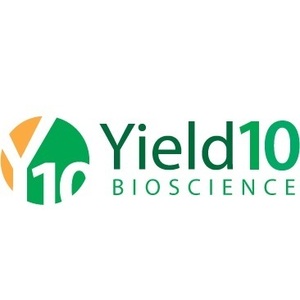Yield10 Bioscience evaluates novel traits in camelina, canola

November 2, 2020
BY Yield10 Bioscience Inc.
Yield10 Bioscience Inc., an agricultural bioscience company, on Oct. 1 announced it has completed the harvest for its 2020 Field Test Program for Camelina and canola trials conducted in the United States and Canada. Yield10’s 2020 Field Test Program is designed to evaluate several novel traits in Camelina and canola, and the company expects to begin reporting data from the field tests in the fourth quarter of 2020 through early 2021.
“We are pleased that our field trial contractors completed the seed harvest on schedule at all of the sites involved in our 2020 Field Test Program,” said Kristi Snell, Ph.D., chief science officer of Yield10 Bioscience. “We will continue to work closely with our field trial contractors to evaluate data collected from our studies. These field tests are designed to generate agronomic, yield and other data supporting the ongoing development of our traits in Camelina, canola and other commercial crops.”
A summary of the 2020 Field Test Program:
•Camelina/C3004: C3004 is a trait designed to increase seed yield that has shown promise in previous greenhouse and growth chamber experiments.
Advertisement
•Camelina/CRISPR E3902: E3902 is a CRISPR genome-edited trait designed to boost oil content. This line demonstrated positive results in 2019 field tests.
•Camelina/CRISPR C3007: C3007 is a CRISPR genome-edited trait designed to boost oil content. This is the first season of field testing the trait.
•Camelina/C3014 and C3015: Yield10 has designed a novel trait and reprogrammed Camelina to produce a PHA biomaterial as a third seed product in addition to the oil and protein meal.
Advertisement
•Canola/C3004: C3004 is a trait designed to increase seed yield. This is the first season of field testing the trait in canola.
•Canola/C3003: Yield10 grew 14 new canola/C3003 commercial quality lines for seed bulk up in the field in 2020 that the Company currently plans to field test in 2021. C3003 is a seed yield trait.
In the field tests of its novel traits in Camelina and canola, Yield10 monitored key agronomic and growth parameters of the plants throughout the growth period. Yield10 also plans to evaluate seed yield, oil content, PHA content and/or other metrics of the traits as appropriate after seed harvest. The field tests are designed to generate data on the performance of the novel traits under field conditions and to advance the development of the traits toward commercialization. The program will also generate field grown seed for subsequent field studies.
Related Stories
CountryMark on July 22 celebrated the completion of more than $100 million in upgrades at its refinery in Indiana, including those related to soybean oil storage. The facility produces renewable diesel via coprocessing technology.
ATOBA Energy and Air Moana are partnering to implement scalable solutions for the supply of SAF. The collaboration aims to ensure long-term SAF availability while supporting local initiatives to develop sustainable fuel production in Tahiti.
Neste Corp. on July 24 released second quarter results, reporting record quarterly renewable product sales volumes despite weaker margins. SAF sales were up nearly 80% when compared to the first quarter of 2025.
Valero Energy Corp. on July 24 released second quarter results, reporting a profitable three-month period for its ethanol segment. The renewable diesel segment posted a loss, but the company’s new sustainable aviation fuel (SAF) unit operated well.
The IRS on July 21 published a notice announcing the 2025 calendar-year inflation adjustment factor for the Section 45Z clen fuel production credit. The resulting adjustment boosts maximum the value of the credit by approximately 6%.
Upcoming Events










